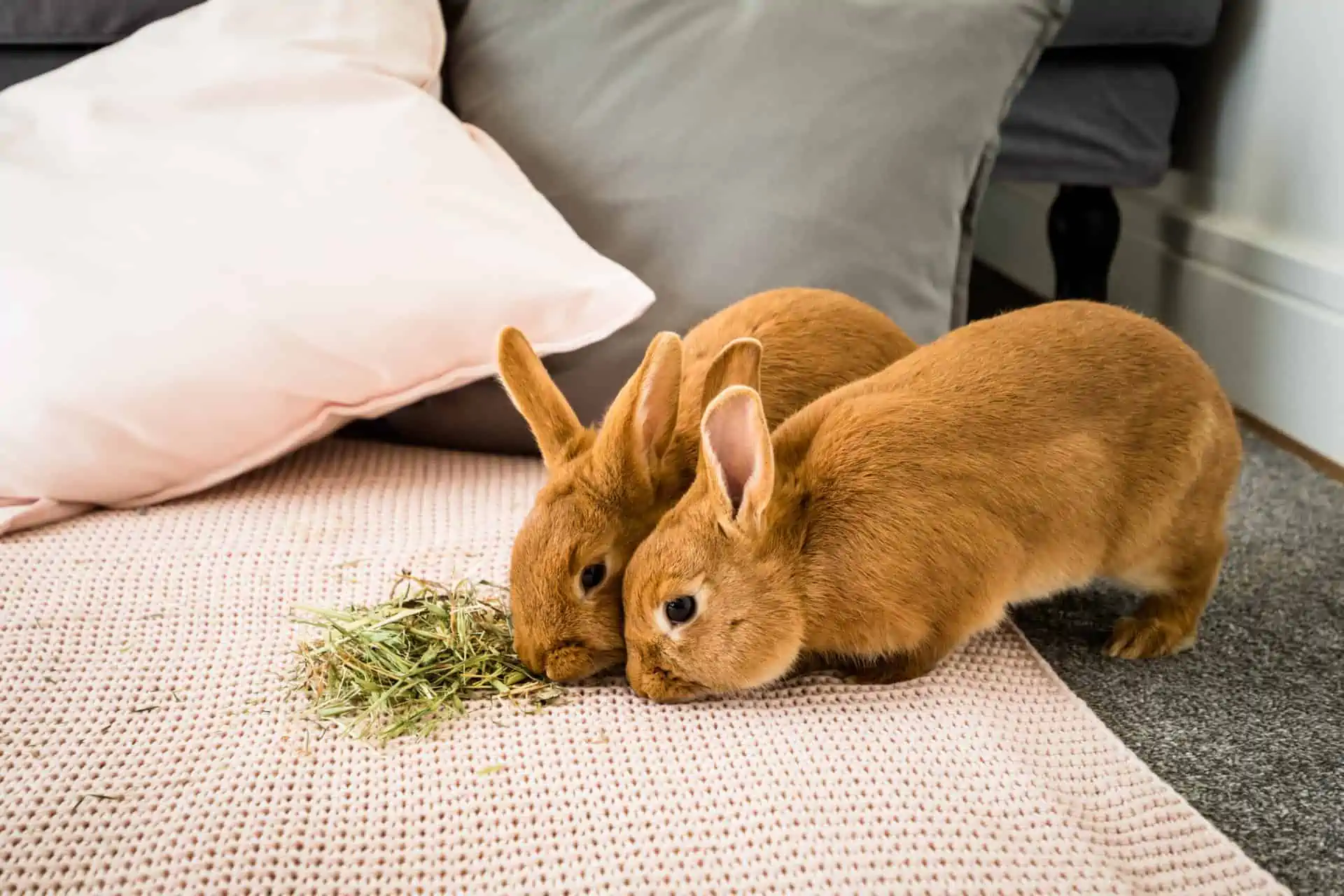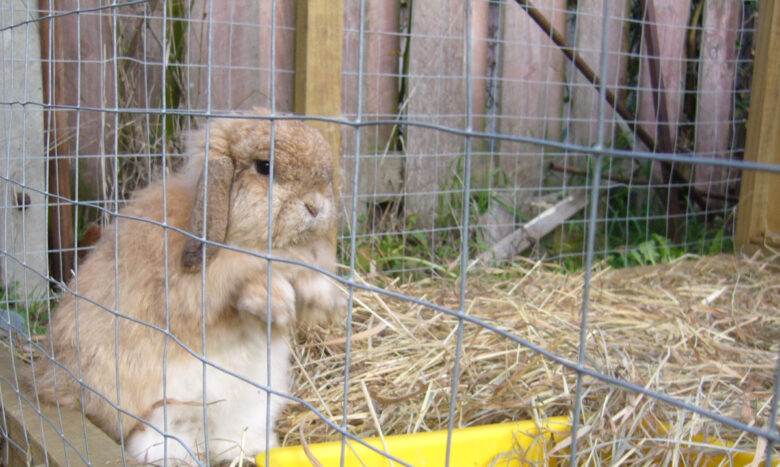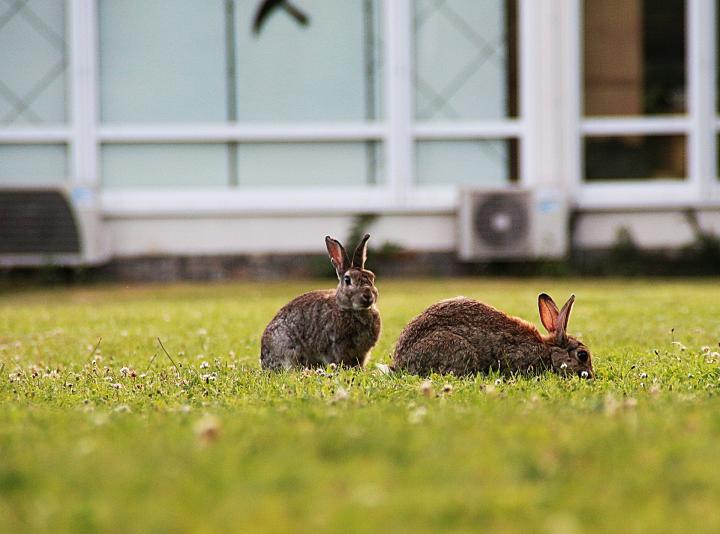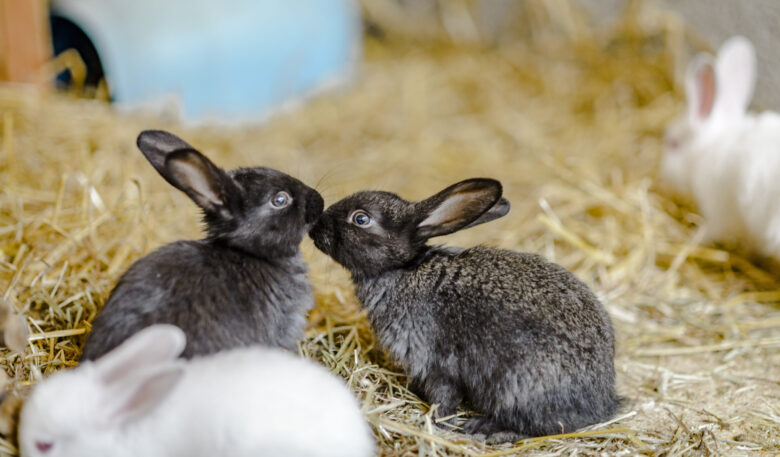Bunnies are charming, entertaining creatures that can make wonderful pets. They have a fantastic sense of curiosity and are lively and sociable. They are highly inquisitive creatures who adore discovering new places. Unfortunately, if they are not securely secured, this might put them in danger. But if you’re not careful, they may also turn out to be easy pickings for predators or flee if they are startled. Anyone who has raised a rabbit knows that they require a lot of physical activity. Allowing your rabbit to play in the garden or yard is a terrific way to offer them some outdoor time. However, it’s crucial to make sure that your rabbit is protected and secure before converting your garden into a playground. Here are some quick tips for protecting your bunny outside.
Contents
- 1. Install A Bunny-Proof Fence Around Your Yard
- 2. Place A Top On Your Garden To Protect Plants From Being Eaten
- 3. Keep Your Bunny’s Water Bowl In A Shady Spot
- 4. Don’t Use Pesticides Or Herbicides In Your Yard
- 5. Keep Your Bunny’s Food Away From Their Outside Play Area
- 6. Keep Your Rabbit Indoors At Night
- 7. Keep Your Bunny Away From Wild Animals
- 8. Put Some Toys In The Hutch
- 9. Train Your Bunny To Come When You Call Him/Her
- Conclusion
1. Install A Bunny-Proof Fence Around Your Yard
This is arguably the most crucial measure you can take to safeguard your bunny outside. Simple wire fences are insufficient since predators may simply climb or jump over them. Choose a sturdy fence that is at least 3 feet high as an alternative. Make careful to extend the fence underground as well if you live in a region where creatures with tunneling habits, such as gophers or moles, are common. Additionally, bunnies are prone to heat stroke, so it’s crucial to offer them a lot of shade when they’re outside. With a tarp or umbrella, create a shaded area for them.
2. Place A Top On Your Garden To Protect Plants From Being Eaten
Install a tomato cage or chicken wire fence around your garden beds if you’re concerned about your rabbit going in there and devouring your plants. By doing this, you can keep your rabbit outside while still protecting your plants. Give bunnies lots of places to hide in their outdoor habitat since they enjoy doing so. This can take the form of cardboard boxes, overturned flower pots, or even pet igloos. In addition to providing safety from predators, hiding places give bunnies a sense of security.
3. Keep Your Bunny’s Water Bowl In A Shady Spot

Source: rabbitawarenessactiongroup.co.uk
Water bowls must be kept in a shaded area to prevent the water from becoming too hot and giving rabbits heat stroke. Additionally, it’s crucial to have other water bowls in case one is knocked over. A rabbit is estimated to require around one ounce of water per pound of body weight each day. Making sure fresh water is constantly accessible will also encourage your bunny to drink more, which is essential for their health.
4. Don’t Use Pesticides Or Herbicides In Your Yard
If consumed by rabbits, pesticides and herbicides can be quite dangerous. If you do need to use them, be careful to do it away from your rabbit and out of reach. These chemicals are frequently used in everyday home goods like fly sprays and weed killers. You must always read the labels of any goods you use in your yard or garden and steer clear of anything that can endanger your rabbit. Also, avoid using any fertilizers that contain bone meal as this can be poisonous to rabbits. Moreover, when you see how fast can bunnies run, you’ll realize that it would be impossible to keep them from getting into areas that have been sprayed with these chemicals. The only safe way to use them is if you can create a physical barrier between your bunny and the sprayed area.
5. Keep Your Bunny’s Food Away From Their Outside Play Area

Source: pethelpful.com
Bunnies are renowned for being inquisitive animals who will nibble on and smell anything that piques their curiosity. As a result, if you put their food out near where they play, they could consume something dangerous. Keep all food and water in a secure location away from chemicals and other possible dangers. Additionally, it is appropriate to watch your rabbit when they are outside to make sure they are not getting into anything inappropriate.
6. Keep Your Rabbit Indoors At Night
As nocturnal creatures, rabbits are more active at night. Because of this, they are more prone to encounter predators like foxes, owls, and coyotes. It is preferable to keep your rabbit indoors at night for this reason. If you must release them outside, place them in a safe location where scavengers cannot get to them. Additionally, never leave your rabbit unattended while letting them out during the day.
7. Keep Your Bunny Away From Wild Animals

Source: almanac.com
Given that they are prey animals, rabbits must be kept away from any wild creatures that could consider them a meal. This applies to canines like dogs, cats, foxes, coyotes, and even certain raptors. Keep your rabbit indoors if any of these creatures live in your area. If your neighborhood is full with predators, you might want to create a safe cage for your rabbit to play in. To protect your rabbit from raptors, the cage should be constructed of sturdy materials like wire mesh or hardware cloth and have a roof. Additionally, the cage should have lots of hiding spots and be large enough for your rabbit to run about in.
8. Put Some Toys In The Hutch
Bunnies like chewing, therefore it’s crucial to provide them with items to do so that they don’t start gnawing on the bars of their cage or your furniture. Numerous secure rabbit toys are available at your neighborhood pet shop. Tennis balls may be placed in the cage for the rabbits to play with because it has been noted that they enjoy playing with balls. Additionally, you may let your rabbit play with some of its favorite toys when inside the house, but always keep an eye on it.
9. Train Your Bunny To Come When You Call Him/Her

Source: bluecross.org.uk
Training your rabbit to come when called is the final easy way to keep it safe outside. In this manner, you may simply call your rabbit back if it starts to stray. You may start teaching your rabbit by giving it a treat each time it responds to your call. With enough repetition, your rabbit will ultimately learn that responding to its name results in a reward.
Conclusion
In conclusion, the aforementioned advice is a simple approach to keep your bunny secure and safe outside. Just keep in mind to be patient, have fun, and take pleasure in seeing your rabbit frolic outside!
